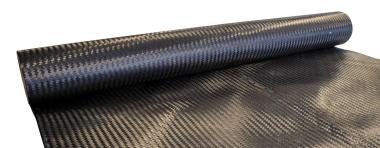EREMA Group partners with Australian technology pioneer
At K show in Düsseldorf, the world’s leading trade fair for plastics and rubber, EREMA Group announced a strategic investment in clean technology company BlockTexx®. The Australian pioneer has developed a process that separates polyester and cellulose from blended textiles. By combining both companies’ technologies, the partnership aims to scale post-consumer textile-to-textile recycling to industrial levels.
BlockTexx®‘s process separates polyester and cellulose from post-consumer textiles and clothing, providing the polyester for EREMA’s technology. The INTAREMA® FibrePro:IV system will process the polyester into recycled pellets suitable for new garment production. “Our thermomechanical recycling system is a core element for textile recycling,” said Wolfgang Hermann, Business Development Manager for Fibres & Textiles at EREMA Group. “However, full-scale textile recycling requires a combination of technologies, with BlockTexx® unlocking the solution for processing polyester-blended textiles.“
Industrial-scale expansion
BlockTexx® operates its first plant in Australia with a processing capacity of 10,000 tonnes per year, with plans for a second plant of 50,000 tonnes per year. Scaling up requires a strong investment partner. “Blended textiles like cotton-polyester account for over 60 per cent of global apparel production but are notoriously difficult to recycle due to fibre incompatibility and chemical contamination”, says Adrian Jones, co-founder of BlockTexx®. EREMA Group’s investment brings not only capital but also deep recycling expertise, proven technology and infrastructure. From the very beginning, it felt like a true partnership, Jones notes: “Both companies share the same intellectual curiosity and EREMA Group was committed to this journey from day one.”
Textile industry faces recycling challenges
According to global non-profit Textile Exchange 75 million tonnes of synthetic fibres were produced in 2023, with polyester being the most common, accounting for 57 per cent of total fibre production. Recycling rates for polyester are estimated at only 1 per cent. “Currently, nearly all the recycled polyester in the clothing you see in retail stores is derived from PET plastic bottles” says Graham Ross, co-founder of BlockTexx®. As per Textile Exchange, recycled fibres constituted 7.7 per cent of the global fibre market in 2023, with 7 per cent being recycled polyester from waste PET bottles. Hackl emphasizes: “The goal must be to ensure that rPET from bottles is returned to new bottles. This investment is not only positive for the textile industry, but also for the plastics industry. By keeping rPET in the bottle-to-bottle loop, we can stabilize supply and prices for the market.”
With the EU recently adopting binding legislation that will make textile producers responsible for the collection, sorting and recycling of textile waste through mandatory Extended Producer Responsibility (EPR) schemes, the sector is set for change. As these rules come into force over the coming years, the demand for post-consumer textile recycling solutions is expected to grow significantly. “The EU legislation could fundamentally transform the sector. While most textile production takes place in Asia, Europe is a major consumer of fashion. This legislation will therefore have a significant global impact”, Ross notes.
Setting new standards for circularity
By combining mechanical processing, chemical separation, and fibre regeneration, the partnership establishes a model that sets new industrial standards for circularity. “Twenty-five years ago, people could not imagine bottle-to-bottle recycling. Today it is standard. I believe the same will happen for textile-to-textile recycling”, says Hackl. “The textile industry has been slow to recognize the importance of recycling, often citing difficulties as an excuse. Now there are no more excuses. Textile-to-textile recycling will become a reality at industrial-scale through the collaboration between EREMA and BlockTexx®,” adds Jones.
Through the strategic collaboration the EREMA Group emphasizes its commitment to returning polyester to the apparel production cycle and scaling up textile-to-textile recycling. “The PET fibre industry is three times the size of the PET bottle industry. We have been investing in the research and development of textile and fibre recycling for several years. With the technology we already provide for PET fibre recycling, our next step is to aim for full-scale industrial textile recycling. We consider BlockTexx® a key partner in this. Their technology paves the way for used textiles to re-enter the production cycle,” said Manfred Hackl, CEO of EREMA Group.
Erema































